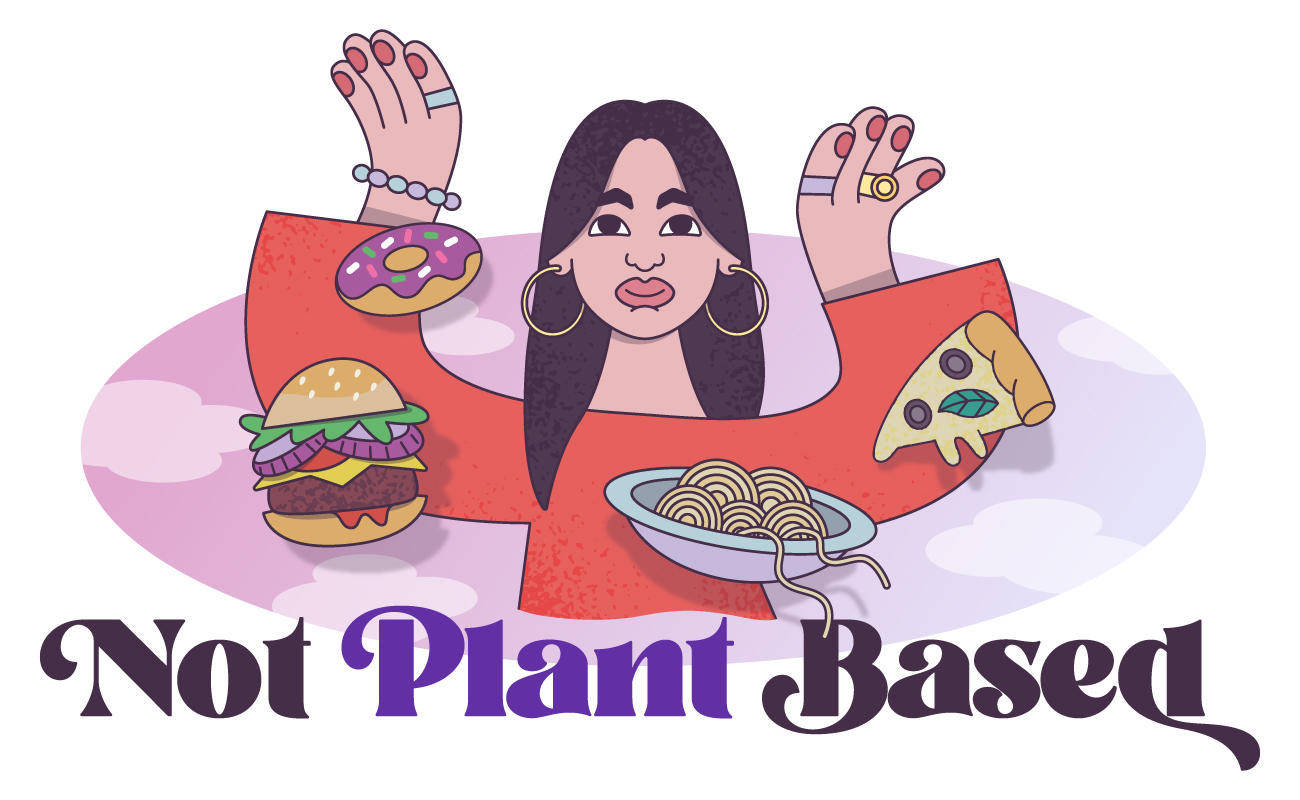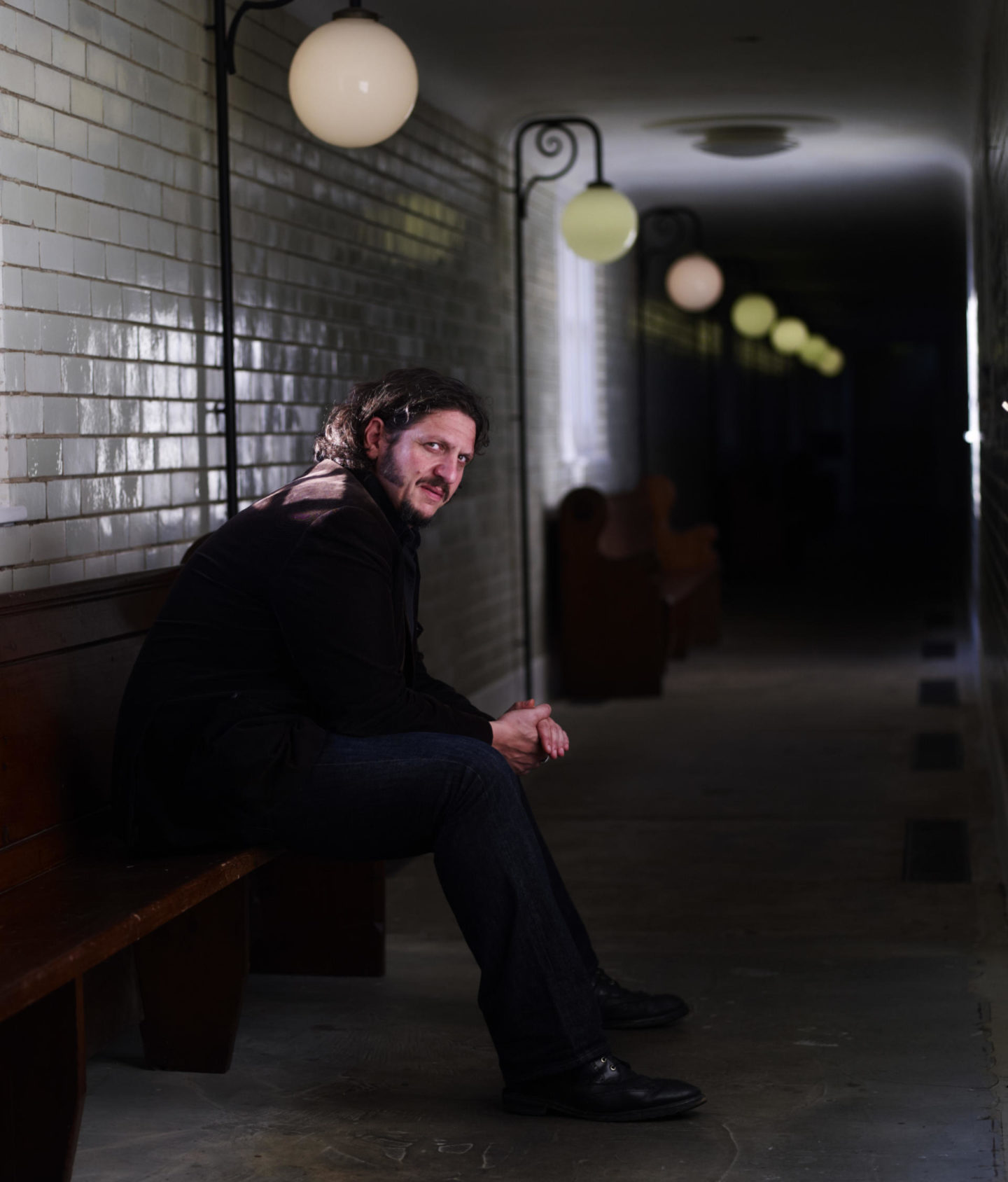
Jay Rayner is “fizzing” with anger. The diction in his voice slowly rises, and his tone becomes increasingly unforgiving as he dives further into his epic rant. Thankfully for my blood pressure, I’m not the one he’s angry with. If you’ve ever made un-scientific, non-evidence based health claims on the Internet, however, you might want to steer clear of this particular food critic. Having written his weekly food column in the Observer for 18 years, this food critic reserves a particular slot on his hit list for those who make ill-informed, incorrect claims about food. Or, as Jay calls it, “abuse of the English language”.
Perhaps, Jay ponders, his respect for science and accuracy stems from a childhood spent surrounded by healthcare literature, with monthly newsletters from the British Medical Journal arriving through his letterbox. Jay Rayner’s mother, Claire Rayner, was a health journalist, novelist and agony aunt and spent much of her professional life advising the nation on various health qualms and campaigning for improved treatment within our NHS.
“Her office was lined with boxes containing every academic study she thought was of use for her,” he remembers. This DIY library often became useful to young Jay, especially in a life before Google. “I had a short but enthusiastic dalliance with narcs [narcotics] as a kid,” Jay recalls, “Before I took anything, I looked up the literature in her box marked “N” for narcotics.
“Even with the recreational stuff, I was always evidence-based.”
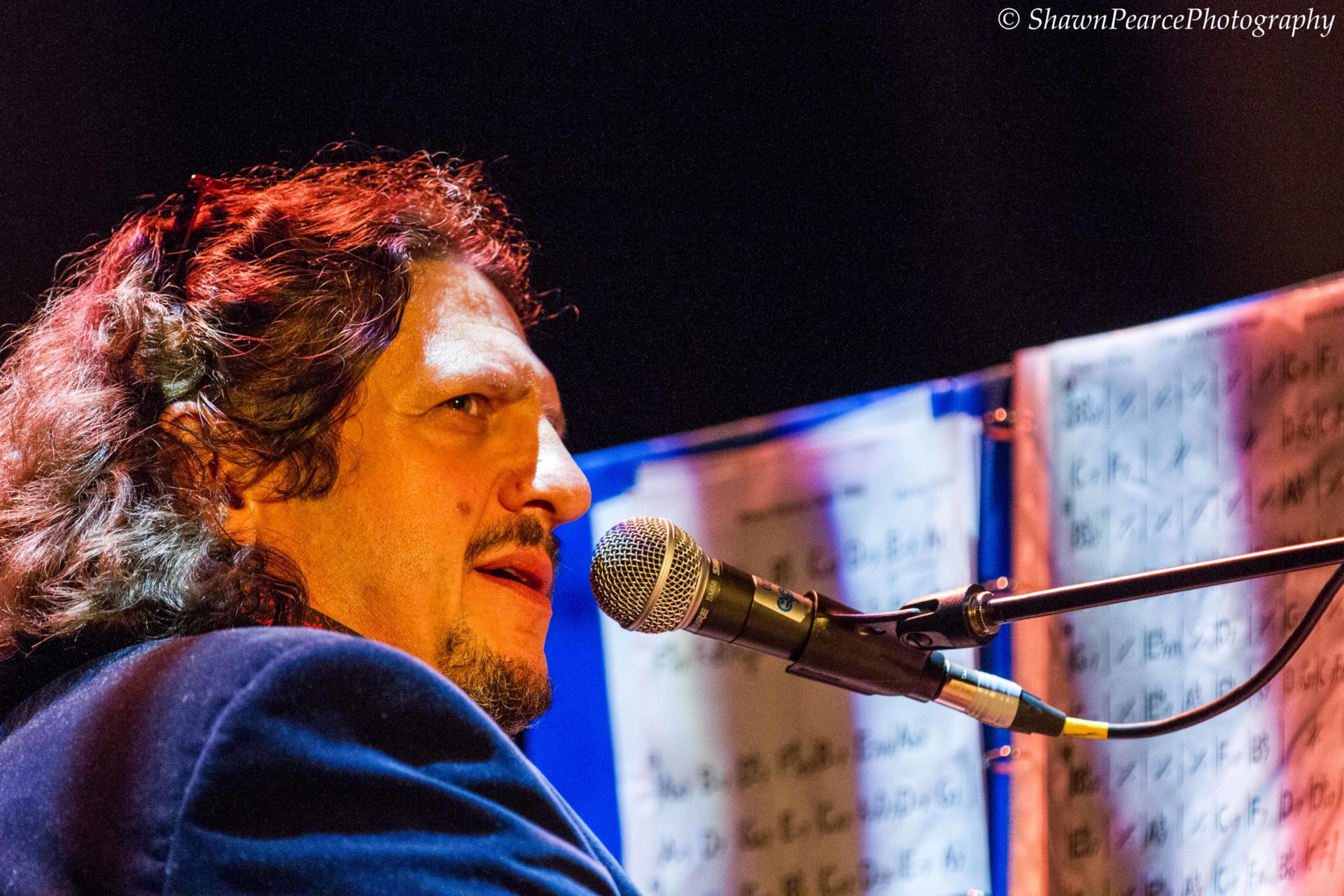 Image: Shawn Pearce
Image: Shawn Pearce
It’s an account that is all too familiar for me – my mum is also a health journalist and her home office is also flooded with symptom encyclopaedias and various NHS fact-sheets (usually about the menopause). Perhaps our shared parental experience explains our familiar levels of bullshit detection.
“I’VE ALWAYS BEEN SUSPICIOUS OF FAD DIETS”
Jay has always been “deeply suspicious” of fad diets, but it wasn’t until he began researching his 2013 book, Greedy Man in a Hungry World, that he noticed how “dangerous they had become”. Jay’s exploration of the food industry took him from the farmers markets of British suburbia to the rolling hills of the New Zealand countryside, with sufficient myth-busting, fact checking and bullshit detection along the way. Did you know that buying locally isn’t always the more environmentally friendly choice? Oh, and that your local supermarket isn’t actually the devil reincarnated?
But that was 2013, and way before the explosion of Instagram goddesses, so-called wellness coaches and #breakfastbowls. Jay’s take on the state of the food faddism today? “It’s pure scientific negligence,” he says, “the use of the clothes of science to disguise what is pure faddism and a misunderstanding about how food and nutrition works.” Anyone who watched the recent BBC One Horizon documentary in which Dr Giles Yeo shed light on the profit-driven, unsupported ethos of “clean eating”, will know that Jay is, of course, absolutely correct.
“IT MAKES ME FURIOUS”
After recent revelations regarding the integrity of so-called “diet gurus” highlighted a significant lack of scientific support for any diet other than ‘everything in moderation’, the back-peddling against the “clean-eating” movement has finally picked up some steam. Funny that, seeing as the likes of Ruby Tandoh and – er – ME, have been writing about the dangers of incorrect dietary advice for over a year. #trendsetters. And Jay Rayner, of course. In fact, the Masterchef judge almost reaches Angry Chef (check him out) levels of rage on the subject of pseudo-science pushers.
“It makes me furious,” he rages. “There’s nothing wrong with wanting to give your opinion about film or restaurants or politics or whatever. But if you start wandering into health advice – you better be absolutely certain what you’re saying – because if you get it wrong, people can die.”
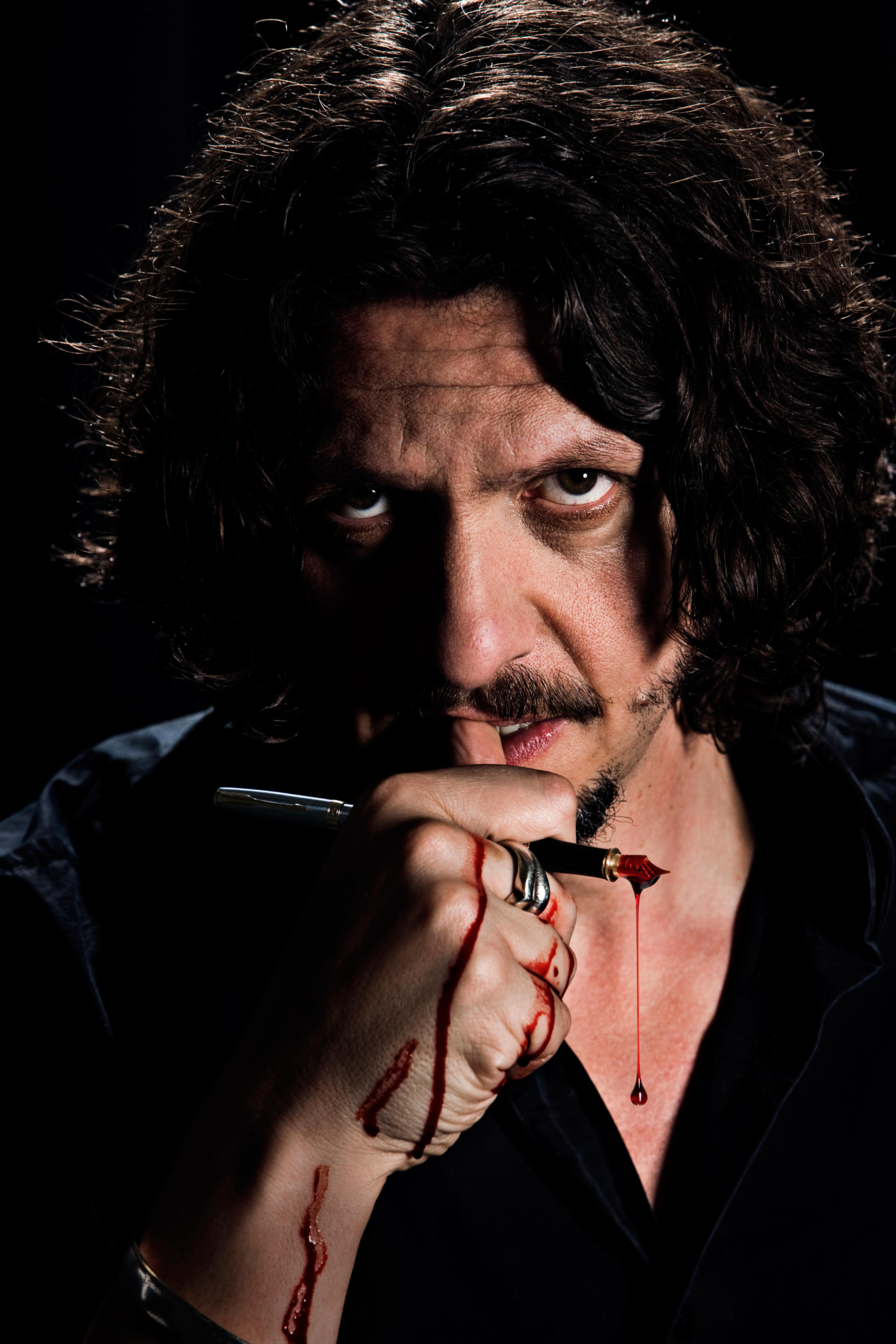 Image: Levon Biss
Image: Levon Biss
It may be dramatic, but again, Jay’s got a very serious and important point.
It was only last month that a mum-of-four reportedly neglected NHS breast cancer treatment, opting to rely on her vegan “alkaline” diet instead to save her life. Instead of trusting the medically certified experts, Sarah, from Kent, has invested in a £300 water filter; some turmeric powder and a few handfuls of bitter almonds. Then there’s the vegan-alkaline diet, of course. Cancer experts DO NOT recommend special diets or any other type of “alternative therapy” as treatment, FYI. Apparently, there is “no scientific evidence to support the notion that a diet can cure cancer” – what a revelation.
“SAYING ‘I DIDN’T THINK TO CHECK’ IS JUST NOT GOOD ENOUGH”
Jay Rayner is adamant that this woman herself is not the only one accountable for any, potentially fatal, consequences. “Anyone who has championed the alkaline diet – that includes [bloggers] should take responsibility for that. If that woman does not sort herself out she will die.” I interject to play devil’s advocate (I’m nice like that). Surely these girls never set out to cause such harm? Their intentions were, largely, pretty harmless and that’s what counts, right? “No,” Jay answers, “your own ignorance is not an excuse.”
Onto the subject of checking your facts. Granted, the dietary advice available on the internet can provide you with “evidence” for just about any or every faddy idea you might stumble across. Nine times out of ten, however, the SO-called “evidence” is based on either a) literally no factual evidence at all or b) one person’s experience of something at a particular point in their life.
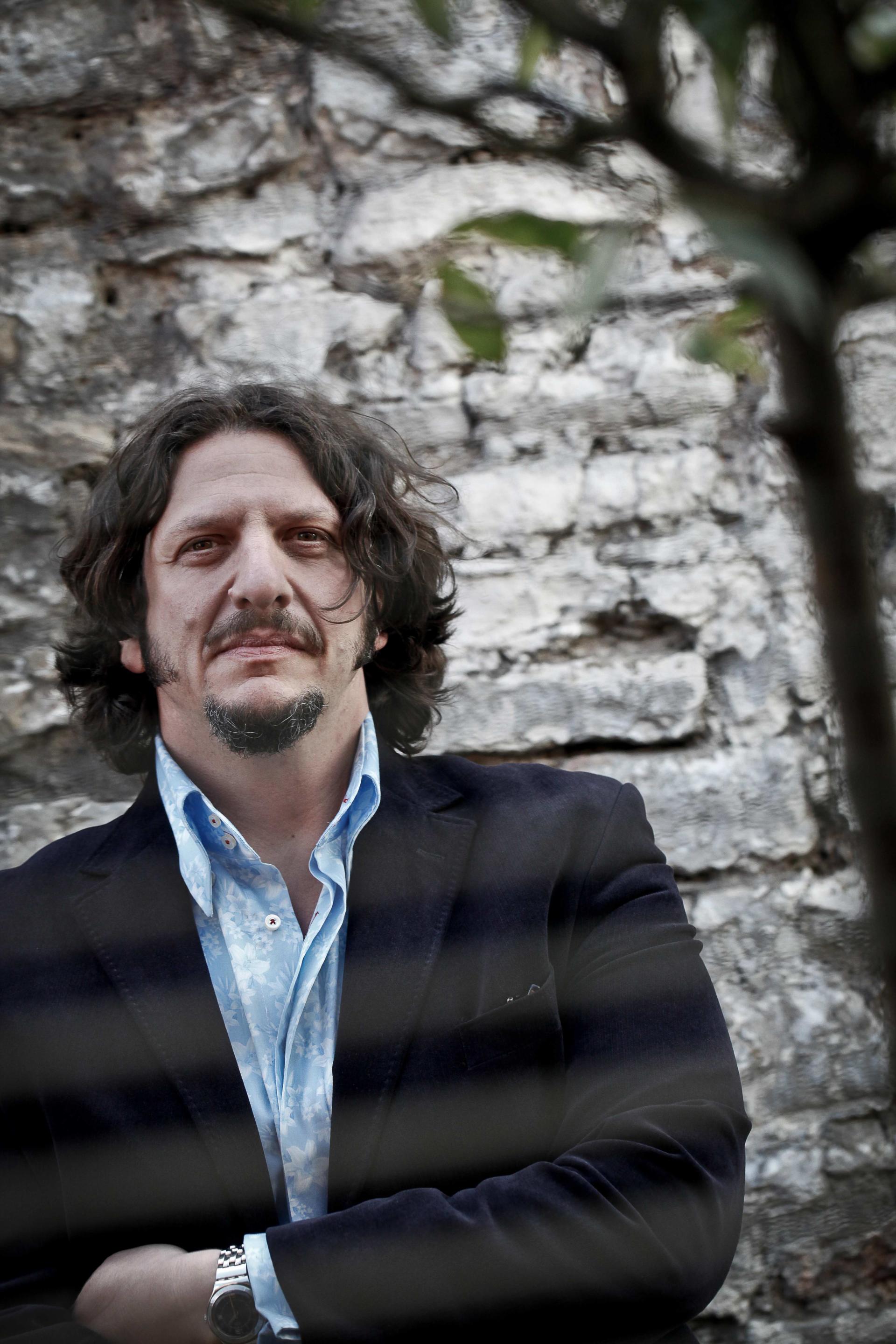 Image: John Arandhara Blackwell
Image: John Arandhara Blackwell
Like me, Jay Rayner’s experience as a newspaper journalist makes him particularly unsympathetic to those who fail to support their outlandish claims. Largely because, If we did that at work, we’d get our asses sued. “You have a responsibility to get it right because lots of people are going to read it,” Jay says, “saying ‘oh I didn’t think to call and check’ that’s just not good enough.
“It means checking, checking and checking again.” On the subject of checking, I ‘check’ in on his opinion about government health and dietary advice, which I assume has more evidence- based grounding than Freelee The Banana Girl’s blog posts. The obesity epidemic is definitely a ‘thing’, but does he think all the panicked media messages of restriction are helping to make us healthier?
“Government health advice becomes the language of exclusion and that’s how detoxes start to make a bit of sense.
“IT’S PART OF LIFE FOR ME. I LOVE A GOOD RESTAURANT”
“Cut out this, that and the other. It creates this narrative about exclusion which leads to people saying, inevitably, I didn’t do it last year but I’ll do it for the next three weeks. Then they end up with sodium deficiencies and hanging around in A&E.” You may think that Jay’s predictions are just that – predictions – but I am pretty sure he’s onto something, especially as his imagined scenario is not far off what happened to me. “We do know that people have a problem with obesity,” he says, “and people putting on weight and not getting enough exercise. But it’s not helped by the illiteracy of the information out there.
“God knows, you have to be sensitive about these things. Any kind of fad diet cannot be healthy by its very nature.” Jay Is not unrealistic about how hard it is to actually get someone to change any behaviour that may effect their health, and when we discuss the complexities of each person’s unique relationship with food, he can certainly empathise. “It’s not like I don’t care,” he says, “I’m aware that I have appetites and a metabolism engineered for the Russians preparing for the Cossacks a’coming.
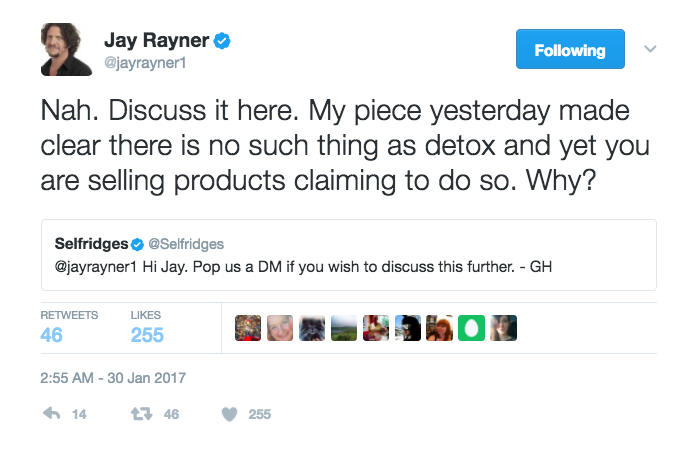
“I have at times in my life been dreadfully obese, in fact, I have never been less than somewhat overweight, so god knows, I understand body image issues. I’ve got two kids, a family to support and I very much want to be here, so I shed another stone and a half again and I try to cut back on bread because I know I eat too much of it!” Despite this admission, Jay Rayner will be damned if he lets any societal pressures stand in the way of a life-long, harmonious relationship with food.
Growing up as part of a large Jewish family in North West London, “noisy families around tables” were a large part of the childhood package, with pretty much “everything” revolving around food. As a fellow North West London Jew, I sit on the end of the phone, nodding knowingly to myself (and also wondering if we’re related).
“GOD KNOWS I UNDERSTAND BODY IMAGE ISSUES”
“My parents had a very meagre upbringing,” he says, “so they were very careful to make sure things were different for their kids.” After being introduced to the restaurant scene by “senior colleagues”, Jay’s mother Claire quickly developed a “love for the restaurant scene” and since passed her passion down the generations. Joe Allen, an American-style diner in the heart of London’s theatre-land, was a particular Rayner-family favourite. “On Sunday night I’m going to their 40th anniversary party,” Jay tells me, “My parents first went there about 10 days after it opened in 1977 – it’s one of the places where I learned to eat out” – and he hasn’t stopped since.
“It’s a part of life for me,” he tells me, “I love a good restaurant. Absolutely love them.” Listening to Jay Rayner talk about his love of restaurants is one of the most surreal, yet wonderful moments I have ever experienced. There’s something about hearing of the sheer delight brought about by a single plate of delicious food that is pretty magical – especially if the person talking is one of your ultimate food heroes.
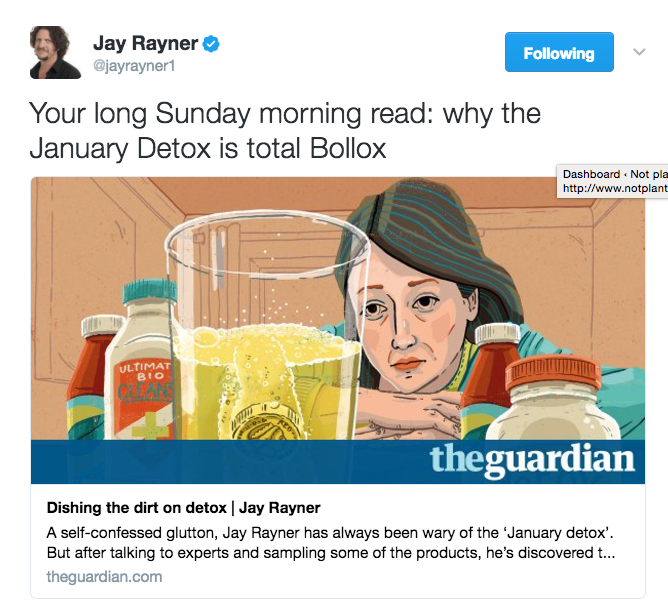
I’m surprised to hear that not everyone is a fan of my favourite food critic – apparently, it’s not uncommon for him to receive disapproving comments from readers at the bottom of his restaurant reviews. Most of which, are not concerned with the quality of his review, but rather, the price of dinner.
“£500 on dinner!” they proclaim, “how on earth can you justify such a thing?!” Jay answers the haterz with another question; “Why is it accepted that we spend up to £500 getting the train down to London to watch our favourite team play football, but we think it’s unjust to spend the same amount on good food.” He’s right, of course. It’s unlikely a £800 holiday to Greece would be considered, “excessive”, nor would the combined cost of those monthly Asos hauls. Decided to treat yourself to a new designer handbag? If it brings you joy, and you can afford it, then why the hell not?
Yet, it’s rare that the same attitude is ever applied to the simplistic pleasure of a delightful dinner – unless, of course, it’s so-called “health” related. I bet the clean eating brigade don’t think spending an extra fiver on “Bone Broth” (AKA chicken stock) is a waste of money. Especially as it’s guaranteed to save you from terminal diseases and make your pee golden.
As we wrap up our lengthy conversation (my fault, entirely), I ask Jay how he defends himself against these angry commentators. Given that most of my monthly paycheck goes straight into Mr Wasabi’s back pocket, it’s something I often berate myself for – but is it really a “waste”? “It depends what you attach your value too,” he says, “If we have expendable income, we are entitled to spend it how we will and wherever we locate pleasure. “For some people, that is going away to Paris or watching your favourite Rugby team. For some people, that is two seats at the Royal Opera House. For me? It’s dinner.” I have one word: Ditto.
Jay Rayner’s latest book, The Ten Food Commandments is out now and is available on Amazon.
Jay Rayner is performing live across the country from 4th March (both with his Jazz Quartet and without). If you fancy a laugh book tickets at www.jayrayner.co.uk

